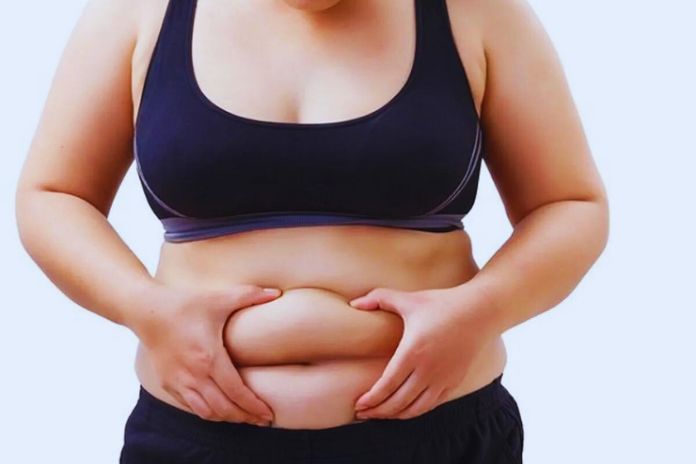If you are over 40, likely, you have already noticed changes in your body, especially in relation to the more incredible difficulty in losing weight and gaining muscle. I bet some of these complaints already bother you…
In order for me to give you some solutions, you must understand the reason for this change. This will help you put the tips into practice and speed up your metabolism. Let’s go.
Why Metabolism Slows Down During Menopause
This is a natural process of the female organism over the years. The slower metabolism is the result of both a “greater economy” of energy to carry out vital functions and a reduction in hormone production.
Menopause is characterized by hormonal decline caused by ovarian failure. This is normal, as all women are born with a finite number of eggs, which begin to run out after the first menstruation.
Muscle Loss And Fat Gain
The hormones with the most significant decline during menopause are progesterone (primarily), estrogen and testosterone. In addition, there is also a decline in GH (growth hormone). All are essential for gaining muscle mass.
There is an increase in insulin resistance, which worsens the ability to control blood sugar and increases energy storage in the form of fat.
We also have to keep an eye on cortisol, which can be elevated by chronic stress and contributes to an increase in blood glucose and, consequently, to gaining weight.
This combination of a drop in hormones and an increase in blood glucose is decisive for the reduction in muscle mass and the increase in fat accumulation. These two factors slow down the metabolism.
Warning About Hormonal Contraceptives
Some women suffer from hormonal decline well before the menopause. One of the causes is the use of hormonal contraceptives, which can lead to what we call chemical menopause.
It is always important to talk to your trusted doctor about contraception options and check your hormonal balance.
Consequences Of Slow Metabolism In Menopause
Here are some of the women’s top complaints:
- Change in body composition, with an increase in fat and loss of muscle;
- Increased localized fat, mainly in the abdomen, arms and breasts (“apple” shaped body);
- Risk of sarcopenia and osteopenia;
- Sagging, even in thin women;
- Difficulty losing weight.
How To Speed Up Metabolism During Menopause
Food
The first step is to review your diet, and professional help is precious for this.
It will increasingly be necessary to adapt the caloric intake and, mainly, the balance between carbohydrates, proteins, healthy fats and other essential nutrients.
Supplementation may be indicated, but only a doctor or, in some cases, a nutritionist can prescribe it.
It is recommended to reduce the consumption of ultra-processed foods rich in chemical additives, refined carbohydrates and trans fats.
Hydrate! This means drinking water frequently, even if you are not thirsty. In fact, thirst is a symptom of a dehydrated body.
Physical Activity
No more sedentary lifestyle. Muscles are built with the proper stimulation and adequate nutrition, and believe me, you will need them to speed up your metabolism.
Strength exercises (weight training is the main one) will help you build lean mass. It’s no use just walking, running, dancing… Aerobic activity is essential for cardiopulmonary health and the production of well-being neurotransmitters, but you need strength stimuli to gain muscle.
The combination of aerobic and anaerobic activities will help you speed up your metabolism, prevent diseases, tone your body, reduce sagging and lose weight.
Quality Sleep
Underestimating the importance of sleep for health and weight loss is a common mistake. During sleep, several metabolic functions are carried out, such as tissue repair and hormone production.
Sleeping well is essential for strengthening the immune system, repairing tissues and building muscles, reducing stress, and producing neurotransmitters and hormones.
Try to sleep earlier, until 10 pm. Put your cell phone and TV aside at least 1 hour before going to bed. Create a cozy and dark environment (even “stand-by” lights on electronic devices can be harmful).
Stress Management
Controlling stress will help you keep cortisol balanced. So, it’s time to value hobbies even more, relaxing activities like yoga and meditation, moments of pleasure with family and friends, travel… Everything that fills you with joy and tranquillity.
Hormone Balance
In fact, the reduction in hormones is the main factor for slower metabolism, associated with fat gain and a reduction in lean mass.
It is recommended that you do not wait for the climacteric to start taking care of your hormonal balance. Monitoring this decline at an early stage helps to reduce the effects of menopause and the unpleasant symptoms that accompany it.
Hormone replacement is a safe alternative when performed by a qualified doctor. Each woman must be evaluated individually to understand whether it is an option for her case.
Recovering testosterone levels, for example, makes it easier to maintain a healthy body composition and speed up your metabolism, in addition to the countless benefits for well-being and health. As I said, each case must be evaluated and monitored by a doctor.
Your Health Is At Stake
Of course, the aesthetic issue is essential for our self-esteem. But it is indisputable that hormonal drops and slow metabolism are harmful to health. And that should be your primary concern.
Menopause is associated with an increased risk of diabetes, cardiovascular disease, sarcopenia, osteoporosis, chronic pain, and depression, as well as a reduction in libido and mood.
Also Read: Ten Commandments To Maintain A Healthy Body

